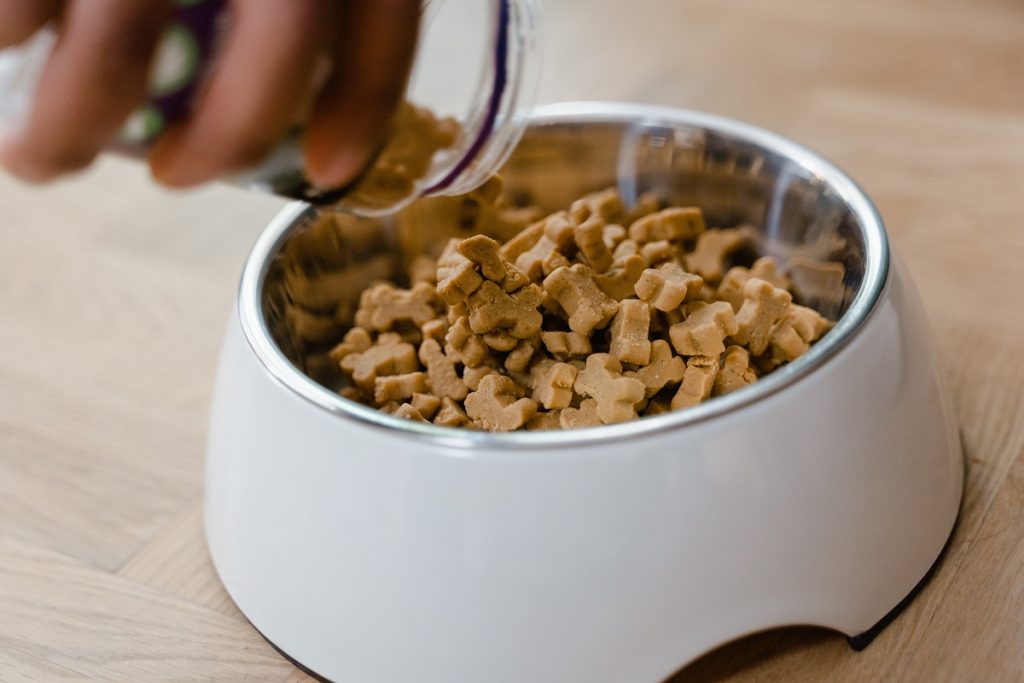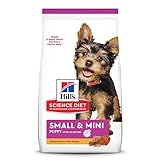Finding the Best Dog Food for Bichon Frise: Nourishing Your Beloved Companion
Welcome to our guide on finding the best dog food for Bichon Frise. With the abundance of dog food options available in the market, it can be overwhelming to decide what’s best for your furry friend. In this article, we’ll delve into the specific nutritional needs of Bichon Frises and offer insights to help you make an informed choice when selecting the best dog food for Bichon Frises.

What types of dog foods are available for Bichon Frise?
Generally, there are four types of food available to your Bichon. You can feed your Bichon any combination of the below:
- Processed dry kibble
- Processed canned foods
- Raw foods and bones
- Cooked meals
According to the Bichon Frise Club of America – Providing a Healthy Diet for your Bichon Frise | Bichon Frise Club of America, the best dog food for Bichon Frise is fresh, unprocessed, and human-grade. The best diet for a Bichon Frise is balanced and appropriate for their life stage and energy needs. A good diet typically includes a combination of high-quality protein, healthy fats, vitamins, minerals, and fiber from vegetables and berries.
However, we understand not everyone has the time to cook for themselves, let alone their fur baby and the majority of pet owners will purchase pre-made foods. So, how can you make the best choice for your furry companion from the myriad of pet food options on the market?
How to assess the Best Dog Food for Bichon Frise
Navigating the world of pet foods can be very challenging, especially with the influence of persuasive marketing strategies and complex ingredient lists. The key is to approach the decision critically and assess the claims made by pet food manufacturers based on the evidence they provide. Don’t be swayed by buzzwords like ‘holistic,’ ‘natural,’ or ‘premium.’ Instead, focus on the actual product itself. When selecting a diet for your pet, it’s crucial to consider their specific needs, such as their activity level, age, and health concerns.
As you make your decision, take into account the reputation of the brand producing the food. Do they have a strong record of product safety? Do they have robust quality control processes in place to detect and address toxins and contaminants? Have their food been tested or studied for long-term diet impacts? How do they formulate their diets, and do they have a veterinary nutritionist or qualified animal nutritionist on their team?
Also, consider how they ensure consistency and maintain quality from one batch to another and keep an eye out for pet food recalls or withdrawals. These are published by various government bodies such as this animal and veterinary product Recalls & Withdrawls from the U.S. Food and Drug Administration (FDA). By taking into consideration these factors, you can make a more informed choice when selecting the optimal pet food for your beloved companion.
Is Grain-Free Dog Food the Best Dog Food for Bichon Frise?
You will find many articles on the internet advising you to feed your dog grain-free dog foods. Grain-free dog food is recommended based on the belief that dogs, as descendants of wolves, have a natural preference for a diet without grains. Additionally, there is a view grains, specifically corn, wheat, and soy, could be potential allergens for some dogs, leading to skin issues, digestive problems, or other sensitivities.
The popularity of grain-free diets for dogs also reflects human dietary trends, such as the gluten-free movement. Pet owners sought to provide their dogs with diets that mirrored their own preferences for grain-free and natural ingredients.
However, it’s important to note that the recommendation for grain-free dog food has changed in recent years. The U.S. Food and Drug Administration (FDA) issued an alert regarding a potential correlation between certain types of grain-free diets and dilated cardiomyopathy (DCM) in dogs, particularly those containing ingredients like peas, lentils, legume seeds, and potatoes as main ingredients. While the relationship between grain-free diets and DCM has not been definitively proven, the FDA recommends that pet owners consult with their veterinarians before feeding their dogs grain-free diets.
Is a Raw Diet the Best Dog Food for Bichon Frise?
Feeding a raw food diet to a Bichon Frise is a controversial topic as there are very few scientific studies on this. If you decide to feed your Bichon a raw food diet, it is important to understand the benefits as well as risks associated with this type of diet.
Raw food diets, also known as raw feeding or BARF (Biologically Appropriate Raw Food), consist of uncooked meats, bones, fruits, vegetables, and sometimes other ingredients. The argument for a raw food diet is that it mimics a dog’s natural ancestral diet and can provide various benefits, such as improved digestion, healthier coat, and increased energy levels.
However, it’s crucial to note that raw feeding requires careful planning, balanced nutrition, and proper food handling to avoid potential health risks. It is best to use human-grade ingredients, especially with raw meats as non-human-grade meats could contain bacteria and parasites which are harmful for your Bichon Frise.
Best Dog Food for Bichon Frise: Ingredients to Avoid
When selecting dog food for Bichon Frise, always read the label and avoid the following:
- “Grain-free” marketing, and avoid in particular dog food containing ingredients like peas, lentils, legume seeds, and potatoes as main ingredients
- Artificial preservatives and additives that are poisons and may cause cancer, skin problems, allergies, and other illnesses
- Beet pulp or tomato pomace that may cause tear staining
- Meat or poultry by-products that include organs, skin, feet, hooves, heads, udders, intestines, feathers
- Sweeteners that can lead to diabetes
- “Not human-grade”, especially in raw food as the products could contain bacteria and parasites
Best Commercially Produced Dog Food for Bichon Frise
After carefully considering the evaluation criteria mentioned earlier, along with valuable input from Bichon Frise owners, we have created a list of the best commercially produced, science based dog foods for Bichon Frise that are readily accessible for purchase.
Purina Dog Food for Bichon Frise
Purina is reputable brand of dog food on the market and well regarded by many Bichon owners. Purina is a pet food company that has been around for over 90 years, and the company’s drive to push pet nutrition forward and conduct industry-leading research on the well-being of pets is what makes their pet food stand out. The Purina Pro Plan range is frequently recommended by Bichon Frise owners and their vets.
The Purina Pro Plan dog food line covers all the life stages of your Bichon, from puppy to adult and senior dogs. Purina’s Small Breed formulation is specifically designed for the nutritional requirements of small dogs and is therefore suitable for Bichon Frises. Bichon Frises are renowned for their delicate skin and sensitive stomachs, prompting many owners to opt for the Sensitive Skin & Stomach range.
Within the Purina Pro Plan range, the Pro Plan Puppy Sensitive Skin & Stomach Lamb & Oat Meal Formula stands out as the optimal choice for Bichon Frise puppies with sensitivities.
For adult dogs, the recommended option would be the Pro Plan Adult Sensitive Skin & Stomach Small Breed Salmon & Rice Formula.
Royal Canin Dog Food for Bichon Frise
Royal Canin, a highly regarded pet food company, has earned a strong reputation among Bichon Frise owners. Since its establishment in 1968, Royal Canin has prioritized pets and developed precise nutritional formulas that cater to their ongoing health and well-being.
In addition to their regular line of products, Royal Canin offers a veterinary range specifically designed to address common health concerns among Bichon Frises. These veterinary products can be prescribed by your veterinarian and effectively tackle issues such as sensitive skin, stomach sensitivities, diabetes and bladder problems. For example, Canine Urinary SO is prescribed to Bichons who are known to be prone to urinary tract infections and bladder stones.
Within the regular range of Royal Canin, the optimal choice for your Bichon Frise puppy would be the Small Indoor Puppy Dry Dog Food.
For adult Bichon Frise dogs, Royal Canin offers a specialized formula called Bichon Frise Adult Dry Dog Food. It’s important to note that Royal Canin food contains beet pulp, which may potentially cause or exacerbate tear stains in your Bichon. If this is a concern for you, considering an alternative brand might be advisable.
Hill’s Dog Food for Bichon Frise
Hill’s Pet officially started business in 1948 and prioritizes science-led nutrition, making it the top veterinarian-recommended pet food in the United States. Their extensive range of products includes specialized nutrition options for weight management, skin health, digestive issues, and more. Additionally, they offer a prescription range, known as Prescription Diet products, specifically formulated to address various health conditions, which veterinarians may recommend as part of your pet’s treatment plan.
The best dog food for your Bichon Frise puppy would be the Hill’s Science Diet Puppy Chicken & Brown Rice Recipe for small breeds.
For an adult bichon frise with no health concerns, your Bichon might like Hill’s Science Diet Adult Small & Mini Chicken & Brown Rice Recipe dog food.
The dry food version contains beet pulp so if you are concerned about tear stains, you might like to try Hill’s Science Diet Wet Dog Food, Adult, Small Paws for Small Breeds, Chicken & Barley Recipe.
Finding the Best Dog Food for your Bichon Frise
Finding the best dog food for your Bichon Frise is a crucial step in providing them with optimal nutrition and overall well-being. We hope this article has helped you in selecting the right food for your fur baby. By considering the specific needs and conducting thorough research on reputable brands and their product offerings, you can make an informed decision. A high-quality diet goes beyond meeting minimum nutritional requirements and takes into account factors like ingredient quality, safety, and consistency. As always, please consult with your veterinarian before making changes to your Bichon’s diet.






